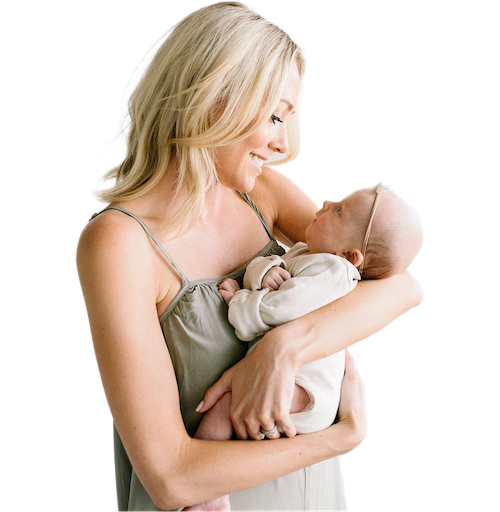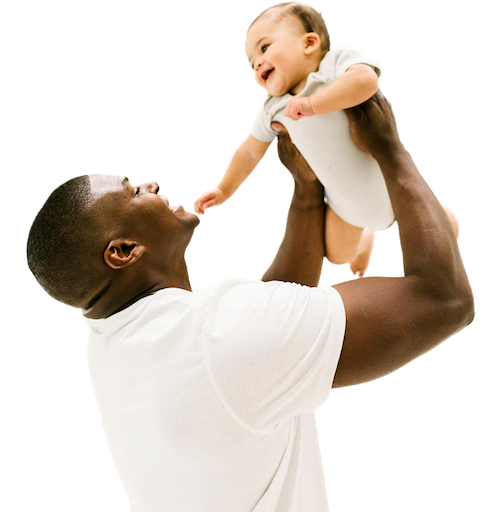Around the time you find a consistent routine with your little one, everything changes. They’re growing so fast. Their personality is emerging. They’re learning new skills like walking and talking. All sorts of changes are on the horizon. One of the biggest transitions: moving to ONE nap!

Nap Transitions: 2 naps to 1
Want step-by-step guidance through the 2-1 nap transition? My mini class will give you everything you need to navigate this nap transition.
Learn MoreWhen do babies drop to one nap?anchor
The typical age for the 2 to 1 nap transition is between 13-18 months. Some babies may transition on the earlier end of this range (or even slightly before), and some won’t be ready until they’re closer to 18 months (or even a little later).
Is 12 months old too early for one nap?anchor
For most little ones, yes. 12 months is typically too early for one nap.
If your baby is showing changes in sleep at 12 months or younger, you may be wondering if it’s time to transition to one nap. Before considering this transition, please understand that most babies simply aren’t ready to drop to one nap until at least 13 months. These struggles are more likely a sign of the major development and transitions that are happening around 12 months. For example many babies at 12 months are beginning to take their first steps and progress in language skills. At the same time, many babies are experiencing big transitions: some graduate to a different room at daycare, others switch from bottles to cups, and some families choose to stop nursing.
Daycare Parents: If your little one is in daycare, I understand that naps may be out of your control. Your daycare may transition your baby to 1 nap as early as 11 months. That’s okay! Trust your daycare. Keep in mind what you can control: bedtime and naps when they’re with you.
What are some signs my baby is ready for one nap?anchor
Your baby may be ready for the 2 to 1 nap transition if they are between 13-18 months AND they begin to:
have trouble falling asleep at nap time and/or bedtime
start to regularly protest or refuse naps
struggle with short naps
require a late bedtime in order to fit both naps into the day
experience frequent night wakings or early morning wakings
In most cases, we want to see the signs for at least 1-2 weeks consistently before deciding it’s time to transition to one nap.
What are the wake windows during the 2 to 1 nap transition? anchor
On a one-nap schedule, wake windows are between 4-6 hours. Here’s what this shift looks like:

Typically, when transitioning to one nap, wake windows are on the shorter end of the range. As babies get older, wake windows tend to increase.
Which nap gets dropped during the 2 to 1 nap transition? anchor
The goal with one nap is for the nap to happen about halfway through the day. This nap typically happens 5-6 hours after waking in the morning. In order to transition to one nap each day, we gradually shift the morning nap later and later. Doing this typically shifts the afternoon nap a bit later and shortens that nap until it’s dropped completely.
How long does it take to transition from 2 naps to 1? anchor
Some little ones transition from two naps to one fairly quickly, while others can take 2-4 weeks. During this transition, it’s common to have some days that don’t work perfectly. You may see times when naps or wake windows just don’t happen the way you planned. That’s okay; this is a normal part of the transition.
Expert Tip: Please know that the transition to one nap is usually much smoother when your little one is fully ready for it and you have the tools to navigate it. My Conquering Naps class will teach you how to set up a flexible routine, establish long and restful naps, and help you conquer the 2 to 1 nap transition.
How do you transition to 1 nap?anchor
For some babies, transitioning to one nap happens easily. Here are steps to help you transition to one nap:
Focus on active awake time in the morning. The trickiest part about transitioning from 2 naps to 1 is that the wake window in the morning needs to be much longer than it was before. Stretch that morning wake window by adding engaging activities.
Continue with a nap time routine. A predictable nap time routine sets your little one up for a restorative nap.
Use an early bedtime if the one nap is short that day. If the nap ends earlier than expected, it may be difficult to keep your baby awake until their normal bedtime. A bedtime as early as 6:00-6:30 pm can help.
Ask for help when you need it. If your little one is struggling with sleep or you’d like more guidance with this transition, I have classes for you. If sleep is generally going well and you want help just for this nap transition, my mini class will give you everything you need.
If all of sleep is a mess, my 5-24 Month Collection is just what you need and will give you step-by-step guidance to set your little one up for great days, consolidated nights, and skills to overcome every bump on your journey.
Keep in mind that the information and content on this blog is for informational purposes and should not be considered medical advice. If you have questions about your child, please reach out to your doctor.








